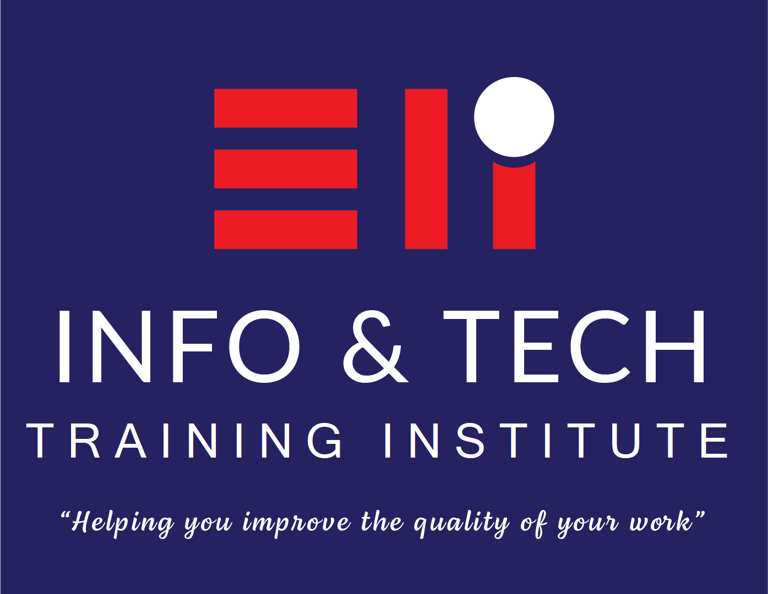Add your promotional text...
Sales Marketing & PR

Here's a general overview of what you might expect to learn:
Public Relations
Building and maintaining a positive reputation: Understanding how to manage an organization's image and respond to crises.
Media relations: Developing relationships with journalists and handling media inquiries.
Internal communications: Fostering effective communication within an organization.
Crisis management: Preparing for and responding to unexpected events that can damage an organization's reputation.
Customer Care
Customer service strategies: Providing exceptional customer experiences through effective communication and problem-solving.
Customer relationship management (CRM): Using tools and techniques to manage customer interactions and data.
Complaint handling: Addressing customer concerns in a professional and timely manner.
Customer satisfaction measurement: Assessing customer satisfaction levels and identifying areas for improvement.
Would you like to focus on a specific area of public relations or customer care? For example, we could delve deeper into crisis management, customer experience, or media relations.
Public Relations and customer care

Public Relations, Communication, and Organizational Reputation Management is a vital field that focuses on building and maintaining positive relationships between an organization and its stakeholders. This course is designed to equip participants with the knowledge and skills necessary to effectively manage an organization's reputation and communicate effectively.
Here's a breakdown of the key topics you're likely to encounter:
Public Relations Fundamentals
Definition and scope of PR: Understanding the role of PR in organizations.
PR planning and strategy: Developing effective PR plans and strategies.
PR ethics and values: Adhering to ethical principles in PR practice.
Communication Theory and Practice
Communication models: Understanding various communication models and their implications.
Interpersonal and organizational communication: Effective communication within and outside the organization.
Crisis communication: Preparing for and responding to crises that can damage an organization's reputation.
Organizational Reputation Management
Reputation assessment: Measuring and evaluating an organization's reputation.
Reputation building and maintenance: Strategies for enhancing and protecting an organization's reputation.
Reputation repair: Rebuilding a damaged reputation after a crisis.
Stakeholder Management
Stakeholder identification and analysis: Identifying and understanding key stakeholders.
Stakeholder engagement: Building and maintaining positive relationships with stakeholders.
Stakeholder communication: Effectively communicating with stakeholders.
Media Relations
Media landscape: Understanding the media environment and its impact on PR.
Media pitching and placement: Securing media coverage for an organization's messages.
Media training: Preparing spokespersons for media interviews.
Digital PR and Social Media
Social media platforms: Understanding and utilizing popular social media platforms.
Social media strategy: Developing effective social media strategies.
Social media monitoring and analytics: Tracking social media performance and insights.
Event Planning and Management
Event planning process: Planning and executing successful PR events.
Event evaluation: Assessing the effectiveness of PR events.
Ethical Considerations in PR
Ethical dilemmas in PR: Recognizing and addressing ethical challenges.
Ethical codes and standards: Adhering to ethical guidelines in PR practice.
By completing this course, participants will gain a solid understanding of public relations, communication, and organizational reputation management. They will be equipped with the skills to effectively manage an organization's reputation, build positive relationships with stakeholders, and communicate effectively in various contexts.
Public Relations, Communication and Organisational Reputation Management

Customer Focused Marketing
Customer-focused marketing is a strategic approach that prioritizes understanding and meeting the needs and wants of customers. This course aims to equip participants with the knowledge and skills necessary to implement effective customer-centric marketing strategies.
Key topics to be covered in the course:
Understanding Customer Needs and Wants
Market research: Conducting research to identify customer needs, preferences, and behaviors.
Customer segmentation: Dividing the market into distinct groups based on shared characteristics.
Customer personas: Creating detailed profiles of ideal customers.
Building Customer Relationships
Customer relationship management (CRM): Implementing CRM systems to manage customer interactions and data.
Customer loyalty programs: Developing strategies to retain and engage customers.
Customer service: Providing excellent customer service experiences.
Marketing Strategy Development
Marketing planning: Creating comprehensive marketing plans aligned with business objectives.
Marketing mix: Understanding the four Ps of marketing (product, price, place, promotion).
Target market analysis: Identifying and analyzing the target market.
Digital Marketing
Content marketing: Creating and distributing valuable content to attract and engage customers.
Social media marketing: Utilizing social media platforms to reach and interact with customers.
Search engine optimization (SEO): Optimizing websites for search engines to improve visibility.
Email marketing: Building and nurturing email lists to reach customers.
Marketing Analytics
Marketing metrics: Tracking and measuring key marketing performance indicators (KPIs).
Data analysis: Using data to gain insights and make informed marketing decisions.
Customer-Centric Culture
Employee training: Ensuring employees understand the importance of customer focus.
Customer-centric mindset: Fostering a customer-oriented culture within the organization.
The duration of the course will depend on the depth of coverage and the learning pace of the participants. A typical course might last between 2-4 days, but this can be adjusted to meet specific needs.
By completing this course, participants will develop a strong foundation in customer-focused marketing and be able to implement effective strategies to drive business growth and customer satisfaction.

New Product Development and Marketing management
New product development (NPD) is a critical process for businesses seeking to innovate and stay competitive. This course aims to equip participants with the knowledge and skills necessary to effectively manage the entire NPD process, from idea generation to product launch and marketing.
Key topics to be covered in the course:
Understanding the NPD Process
NPD stages: Exploring the various stages of the NPD process, including idea generation, concept development, product design, prototyping, testing, launch, and commercialization.
NPD frameworks: Understanding different NPD frameworks and methodologies, such as Stage-Gate, Design Thinking, and Agile.
Idea Generation and Screening
Idea sources: Identifying sources of new product ideas, including market research, customer feedback, employee suggestions, and technological advancements.
Idea screening: Evaluating the feasibility and potential of new product ideas.
Concept Development and Testing
Concept development: Creating detailed product concepts and defining product specifications.
Concept testing: Gathering customer feedback on product concepts through market research.
Product Design and Development
Product design: Developing product designs that meet customer needs and technical requirements.
Prototyping: Creating physical or digital models of the product for testing.
Testing and Evaluation
Product testing: Conducting various types of testing, including functional testing, usability testing, and market testing.
Product evaluation: Assessing the product's performance, quality, and market potential.
Marketing Strategy Development
Target market analysis: Identifying and analyzing the target market for the new product.
Marketing mix: Developing a marketing strategy that includes product, price, place, and promotion.
Branding: Creating a strong brand identity for the new product.
Product Launch and Commercialization
Product launch planning: Developing a comprehensive launch plan.
Sales and distribution: Establishing sales channels and distribution networks.
Post-launch evaluation: Assessing the product's performance and making necessary adjustments.
NPD Management
NPD team management: Leading and managing NPD teams effectively.
NPD project management: Using project management tools and techniques to manage the NPD process.
NPD metrics: Tracking and measuring key performance indicators (KPIs) for NPD projects.
By completing this course, participants will gain a comprehensive understanding of the new product development process and be able to effectively manage the development and launch of new products. They will also develop the skills necessary to lead NPD teams, make informed decisions, and drive innovation within their organizations.

Developing and Managing Customer Base
Here's a possible summary of the course content:
Key Topics Covered:
Marketing fundamentals: Understanding the core concepts of marketing, including market research, target audience identification, and marketing mix (product, price, place, promotion).
Digital marketing: Mastering essential digital marketing techniques such as search engine optimization (SEO), social media marketing, content marketing, and email marketing.
Branding and brand management: Building and maintaining a strong brand identity for the company.
Customer relationship management (CRM): Understanding customer needs and building lasting relationships.
Marketing analytics: Using data to measure marketing performance and make informed decisions.
Marketing strategy development: Creating effective marketing strategies aligned with business objectives.
Marketing communication: Developing effective marketing messages and channels.
Marketing ethics and legal compliance: Adhering to ethical standards and legal requirements in marketing.
Course Objectives:
Equip participants with the essential skills to excel in marketing roles.
Enhance understanding of marketing concepts and strategies.
Develop practical skills in digital marketing and CRM.
Improve ability to create effective marketing campaigns.
Foster a customer-centric mindset.
Course Benefits:
Career advancement opportunities.
Increased job satisfaction.
Improved marketing performance.
Enhanced ability to contribute to business growth.
For more specific information on the course content and duration, please contact ELi Information and Technology directly or visit their website.

Essential Skills For Marketing Staff
Consumer Behavior is the study of how individuals, groups, and organizations select, use, and dispose of goods, services, ideas, or experiences to satisfy their needs and wants. This course aims to provide participants with a comprehensive understanding of consumer behavior, enabling them to develop effective marketing strategies.
Key topics covered in the course:
Consumer Decision-Making Process
Problem recognition: Identifying a need or want.
Information search: Gathering information about potential solutions.
Evaluation of alternatives: Comparing different options based on criteria.
Purchase decision: Making a choice and purchasing the product or service.
Post-purchase evaluation: Assessing satisfaction with the purchase.
Consumer Motivation
Maslow's hierarchy of needs: Understanding different levels of human needs and their impact on consumer behavior.
Motivation theories: Exploring other theories of motivation, such as expectancy theory and self-determination theory.
Perception
Sensation: How consumers perceive sensory stimuli (sight, sound, taste, touch, smell).
Attention: Factors influencing consumer attention to marketing messages.
Perception: How consumers interpret and organize sensory information.
Learning
Classical conditioning: Associating a brand with positive or negative stimuli.
Operant conditioning: Learning through rewards and punishments.
Observational learning: Learning by observing the behavior of others.
Attitudes and Beliefs
Attitude formation: How attitudes are formed and changed.
Beliefs: Cognitive components of attitudes.
Persuasion: Techniques for influencing consumer attitudes and beliefs.
Personality and Lifestyles
Personality traits: Understanding how personality traits influence consumer behavior.
Lifestyles: Analyzing how consumers spend their time, money, and energy.
Culture and Subcultures
Cultural influences: How culture shapes consumer behavior.
Subcultural influences: Understanding the impact of subcultures on consumer preferences.
Social Influences
Reference groups: The influence of groups on consumer behavior.
Family influences: The role of families in consumer decision-making.
Social class: How social class affects consumer choices.
Consumer Research Methods
Market research techniques: Understanding various methods for collecting consumer data.
Data analysis: Analyzing and interpreting consumer research findings.
By completing this course, participants will gain a deep understanding of consumer behavior and be able to develop effective marketing strategies that resonate with target audiences.

Consumer Behaviour
The Electronic Records Management program at Eli Information & Technology Training Institute aims to equip workers and trainees with the knowledge and skills necessary to effectively manage records electronically.
The program covers a comprehensive range of topics related to electronic records management, encompassing the entire electronic syllabus. This likely includes:
Understanding electronic records
Electronic records management principles
Best practices for creating, storing, and managing electronic records
Electronic document management systems
Information security and privacy in electronic records
Compliance with regulations and legal requirements
Digital preservation and archiving
The program is open to all individuals meeting the standard prerequisites, and is offered both online and in person for groups of workers or staff.
Upon successful completion, participants receive an attendance certificate acknowledging their participation in the program.
Note: While the program aims to provide essential knowledge about electronic records management, it's important to understand that the attendance certificate itself may not be a formal industry-recognized certification.
Get smarter answer from GPT-4o

Advertising and Brand Management
Advertising and Brand Management: A Brief Overview
Advertising and Brand Management is a course that explores the strategic planning, creation, and implementation of advertising campaigns to build and maintain strong brands. It delves into the intricate relationship between advertising and brand equity, focusing on how effective advertising can enhance brand awareness, loyalty, and perception.
Key Topics Covered:
Brand Strategy: Understanding brand identity, positioning, and target audience.
Advertising Planning: Developing advertising objectives, budgets, and media strategies.
Creative Development: Creating effective advertising messages and visuals.
Media Planning: Selecting the most suitable media channels to reach the target audience.
Advertising Measurement: Evaluating advertising effectiveness and return on investment.
Brand Management: Building and maintaining brand equity through various touchpoints.
Digital Marketing: Integrating digital advertising and social media into brand strategies.
Ethical Considerations: Addressing ethical issues in advertising and brand management.
Course Objectives:
Gain a comprehensive understanding of advertising and brand management principles.
Develop skills in creating effective advertising campaigns.
Learn how to measure advertising effectiveness and optimize campaigns.
Understand the role of brand management in building and maintaining brand equity.
Develop a strategic mindset for planning and executing advertising initiatives.
By taking this course, you will acquire the knowledge and skills necessary to become a successful advertising and brand management professional. You will learn how to effectively communicate brand messages, reach target audiences, and build lasting brand loyalty.

Market research and Product development
Market Research and Product Development: A Brief Overview
Market Research and Product Development is a course that focuses on the process of gathering and analyzing information to understand consumer needs and preferences, and using that information to develop new products or improve existing ones. It involves a systematic approach to gathering data, analyzing it, and using the insights to guide product development decisions.
Key Topics Covered:
Market Research Fundamentals: Understanding the role of market research in product development.
Research Methods: Exploring various research methods, including surveys, interviews, focus groups, and observation.
Data Collection: Learning how to collect data effectively and efficiently.
Data Analysis: Analyzing collected data to identify trends, patterns, and insights.
Consumer Behavior: Understanding consumer decision-making processes and preferences.
Product Development Process: Exploring the stages of product development, from idea generation to commercialization.
New Product Development: Developing strategies for introducing new products to the market.
Product Improvement: Improving existing products to meet changing consumer needs.
Course Objectives:
Gain a comprehensive understanding of market research methods.
Develop skills in data collection, analysis, and interpretation.
Learn how to use market research insights to guide product development decisions.
Understand the product development process from concept to commercialization.
Develop a strategic mindset for product innovation.
By taking this course, you will acquire the knowledge and skills necessary to become a proficient market researcher and product developer. You will learn how to gather valuable consumer insights, analyze data effectively, and use that information to create successful products that meet market demands.
Eli Info Tech Training Institute
Office No.C6 Print Pak Building, Mbabane Industrial site, Eswatini
admin@elinfor.co.sz/ elisha@elinfor.co.sz
Copyrights©2024 Eli Info & Tech Training Institute


